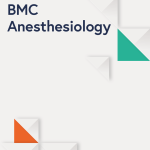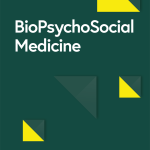Society for Simulation in Healthcare. About Simulation 2022 [Available from: https://www.ssih.org/About-SSH/About-Simulation. Accessed: 01.09.2022
Durham CF, Alden KR. Enhancing patient safety in nursing education through patient simulation. Patient safety and quality: an evidence-based handbook for nurses 2008.
Wang EE. Simulation and adult learning. Disease-a-month. 2011;57(11):664–78.
Boese T, Cato M, Gonzalez L, Jones A, Kennedy K, Reese C, et al. Standards of best practice: simulation standard V: Facilitator. Clin Simul Nurs. 2013;9(6):S22–S5.
Cheng A, Morse KJ, Rudolph J, Arab AA, Runnacles J, Eppich W. Learner-centered debriefing for health care simulation education: lessons for faculty development. Simul Healthc. 2016;11(1):32–40.
Maran NJ, Glavin RJ. Low-to high-fidelity simulation–a continuum of medical education? Med Educ. 2003;37:22–8.
Motola I, Devine LA, Chung HS, Sullivan JE, Issenberg SB. Simulation in healthcare education: a best evidence practical guide. AMEE Guide No. 82. Med Teach. 2013;35(10):e1511–e30.
Zendejas B, Wang AT, Brydges R, Hamstra SJ, Cook DA. Cost: the missing outcome in simulation-based medical education research: a systematic review. Surgery. 2013;153(2):160–76.
Tolsgaard MG. Clinical skills training in undergraduate medical education using a student-centered approach. Dan Med J. 2013;60(8):B4690.
Olaussen A, Reddy P, Irvine S, Williams B. Peer-assisted learning: time for nomenclature clarification. Med Educ Online. 2016;
Tolsgaard MG, Gustafsson A, Rasmussen MB, HØiby P, Müller CG, Ringsted C. Student teachers can be as good as associate professors in teaching clinical skills. Med Teach. 2007;29(6):553–7.
Gazula S, McKenna L, Cooper S, Paliadelis P. A systematic review of reciprocal peer tutoring within tertiary health profession educational programs. Health Professions Educ. 2017;3(2):64–78.
Topping KJ. Trends in peer learning. Educ Psychol. 2005;25(6):631–45.
Topping KJ. The effectiveness of peer tutoring in further and higher education: a typology and review of the literature. High Educ. 1996;32(3):321–45.
Eddy ER, Tannenbaum SI, Mathieu JE. Helping teams to help themselves: comparing two team-led debriefing methods. Pers Psychol. 2013;66(4):975–1008.
Roh YS, Kelly M, Ha EH. Comparison of instructor-led versus peer-led debriefing in nursing students. Nurs Health Sci. 2016;18(2):238–45.
Boet S, Bould MD, Bruppacher HR, Desjardins F, Chandra DB, Naik VN. Looking in the mirror: Self-debriefing versus instructor debriefing for simulated crises. Crit Care Med. 2011;39(6):1377–81.
Boet S, Bould MD, Sharma B, Revees S, Naik VN, Triby E, et al. Within-team debriefing versus instructor-led debriefing for simulation-based education: a randomized controlled trial. Ann Surg. 2013;258(1):53–8.
Kim SS, De Gagne JC. Instructor-led vs. peer-led debriefing in preoperative care simulation using standardized patients. Nurse Educ Today. 2018;71:34–9.
Stasser G, Titus W. Pooling of unshared information in group decision making: biased information sampling during discussion. J Pers Soc Psychol. 1985;48(6):1467–78.
Wittenbaum GM, Stasser G. Management of information in small groups. Thousand Oaks: Thousand Oaks: SAGE Publications, Inc; 1996. p. 3–28.
Leigh GT, Miller LB, Ardoin KB. A nurse educator’s guide to student-led debriefing. Teach Learn Nurs. 2017;12(4):309–11.
Levett-Jones T, Lapkin S. A systematic review of the effectiveness of simulation debriefing in health professional education. Nurse Educ Today. 2014;34(6):e58–63.
Babla K, Lipton J, Williams S, Chopra P, Thenabadu S. Simprovisation: a model for student-led simulation. Clin Teach. 2020;17(1):64–9.
Svellingen A, Røssland A, Røykenes K. Students as facilitators: experiences of reciprocal peer tutoring in simulation-based learning. Clin Simul Nurs. 2021;54:10–6.
Nunnink L, Thompson A. Peer-assisted learning in scenario-based simulation. Med Educ. 2018;52(5):557.
Jauregui J, Bright S, Strote J, Shandro J. A novel approach to medical student peer-assisted learning through case-based simulations. West J Emerg Med. 2018;19(1):193.
Curtis E, Ryan C, Roy S, Simes T, Lapkin S, O’Neill B, et al. Incorporating peer-to-peer facilitation with a mid-level fidelity student led simulation experience for undergraduate nurses. Nurse Educ Pract. 2016;20:80–4.
Carey JM, Rossler K. The how when why of high fidelity simulation. [Updated 2023 May 1]. In: In: StatPearls. Treasure Island (FL): StatPearls Publishing; 2020.
Tamkin P, Yarnall J, Kerrin M. Kirkpatrick and beyond: a review of models of training evaluation: Institute for Employment Studies Brighton, England; 2002.
Atkins S, Murphy K. Reflection: a review of the literature. J Adv Nurs. 1993;18(8):1188–92.
Mamede S, Schmidt HG. The structure of reflective practice in medicine. Med Educ. 2004;38(12):1302–8.
Nguyen QD, Fernandez N, Karsenti T, Charlin B. What is reflection? A conceptual analysis of major definitions and a proposal of a five-component model. Med Educ. 2014;48(12):1176–89.
Amulya J. What is reflective practice. Center for Reflective Community Practice. Cambridge, MA[Online] Available at: http://www itslifejimbutnotasweknowit org uk/files/whatisreflectivepractice.pdf [Accessed 15 April 2009]: Massachusetts Institute of Technology; 2004.
Schön DA. Educating the reflective practitioner. San Francisco, Calif: Jossey-Bass; 1987.
Kainth R, Reedy G. Transforming Professional Identity in Simulation Debriefing: A Systematic Metaethnographic Synthesis of the Simulation Literature. Simul Healthc. 2023;10(1097)
Kolbe M, Grande B, Lehmann-Willenbrock N, Seelandt JC. Helping healthcare teams to debrief effectively: associations of debriefers’ actions and participants’ reflections during team debriefings. BMJ Qual Saf. 2023;32(3):160–72.
Husebø S, Dieckmann P, Rystedt H, Søreide E, Friberg F. The Relationship between facilitators’ questions and the level of reflection in postsimulation debriefing. Simulation in Healthcare, 8 (3), 135-142. Clin Simul Nurs. 2013;9:s26–9.
Dieckmann P, Gaba D, Rall M. Deepening the theoretical foundations of patient simulation as social practice. Simul Healthc. 2007;2(3):183–93.
Dieckmann P, Sharara-Chami R, Ersdal HL. Debriefing practices in simulation-based education. In: Clinical Education for the Health Professions: Theory and Practice. Springer; 2020. p. 1–17.
Ko E, Choi Y-J. Debriefing model for psychological safety in nursing simulations: a qualitative study. Int J Environ Res Public Health. 2020;17(8):2826.
Kolbe M, Eppich W, Rudolph J, Meguerdichian M, Catena H, Cripps A, et al. Managing psychological safety in debriefings: a dynamic balancing act. BMJ Simul Technol Enhanced Learn. 2020;6(3):164.
Dieckmann P, Molin Friis S, Lippert A, Østergaard D. The art and science of debriefing in simulation: Ideal and practice. Med Teach. 2009;31(7):e287–e94.
Abegglen S, Greif R, Balmer Y, Znoj HJ, Nabecker S. Debriefing interaction patterns and learning outcomes in simulation: an observational mixed-methods network study. Adv Simul. 2022;7(1):1–10.
Raemer D, Anderson M, Cheng A, Fanning R, Nadkarni V, Savoldelli G. Research regarding debriefing as part of the learning process. Simul Healthc. 2011;6(7):S52–S7.
Dieckmann P, Birkvad Rasmussen M, Issenberg S, Søreide E, Østergaard D, Ringsted C. Long-term experiences of being a simulation-educator: a multinational interview study. Med Teach. 2018;40(7):713–20.
Collier KG. Peer-group learning in higher education: The development of higher order skills. Stud High Educ. 1980;5(1):55–62.
Adelopo I, Asante J, Dart E, Rufai I. Learning groups: The effects of group diversity on the quality of group reflection. Acc Educ. 2017;26(5-6):553–75.
Tai J, Molloy E, Haines T, Canny B. Same-level peer-assisted learning in medical clinical placements: a narrative systematic review. Med Educ. 2016;50(4):469–84.
Hogan K, Nastasi BK, Pressley M. Discourse patterns and collaborative scientific reasoning in peer and teacher-guided discussions. Cogn Instr. 1999;17(4):379–432.
Hahn S. Understanding noninferiority trials. Korean J Pediatr. 2012;55(11):403.
Steinwachs B. How to facilitate a debriefing. Simul Gaming. 1992;23(2):186–95.
Fleck R. Rating reflection on experience: a case study of teachers’ and tutors’ reflection around images. Interact Comput. 2012;24(6):439–49.
Kihlgren P, Spanager L, Dieckmann P. Investigating novice doctors’ reflections in debriefings after simulation scenarios. Med Teach. 2015;37(5):437–43.
Stangroom J. Chi-square test calculator. Social Science Statistics. 2022 [Available from: https://www.socscistatistics.com/tests/chisquare2/default2.aspx. Accessed: 20.10.2022
Pallant J, Pallant J. SPSS survival manual : a step by step guide to data analysis using IBM SPSS. 7th edition. ed. London: Open University Press; 2020.
Lauritzen J. Reflection levels in simulation-based training. Denmark: University of Neuchatel, Switzerland. Unpublished; 2016.
The Health Research Act. ACT 2008-06-20 no. 44: Act on medical and health research (the Health Research Act) In: The Norwegian Ministry of Health and Care Services, editor. 2008.
The Regional Ethics Committe. About Applying to REK 2022 [Available from: https://rekportalen.no/#hjem/s%C3%B8ke_REK. Accessed: 01.10.2022
Cheng A, Kessler D, Mackinnon R, Chang TP, Nadkarni VM, Hunt EA, et al. Reporting guidelines for health care simulation research: extensions to the CONSORT and STROBE statements. Adv Simul. 2016;1(1):1–13.
Fleiss JL, Levin B, Paik MC. Statistical methods for rates and proportions. Third Edition: John Wiley & Sons; 2003.
Lave J, Wenger E. Situated learning: legitimate peripheral participation. Cambridge: Cambridge University Press; 1991.
Tosterud R, Kjølberg K, Kongshaug AV, Haugom JV. Exploration of two different structures for debriefing in simulation: The influence of the structure on the facilitator role. Simul Gaming. 2020;51(2):243–57.
Baker-Rush ML, Pabst A, Aitchison R, Anzur T, Paschal N. Fear in Interprofessional Simulation: The role of psychology and behaviorism in student participation and learning. J Interprofessional Educ Pract. 2021;24:100432.
Ulmer FF, Sharara-Chami R, Lakissian Z, Stocker M, Scott E, Dieckmann P. Cultural prototypes and differences in simulation debriefing. Simul Healthc. 2018;13(4):239–46.
Rana S-C, Francis U, Zavi L, Ella S, Honein-Abou Haidar G, Peter D. Cultural differences in simulation debriefing: A qualitative analysis. Heliyon. 2023;9(4)
Robertson K, Ju M, O’Brien BC, van Schaik SM, Bochatay N. Exploring the role of power during debriefing of interprofessional simulations. J Interprof Care. 2022:1–9.
Simmons J. A better route with conversation maps. Association for Supervision and Curriculum Development. 2020; 77, No. 7(10.09.2022).
Krahenbuhl KS. In class discussions, slow and steady wins. Educ Leadersh. 2020;77(7):28–32.
Viggers S, Østergaard D, Dieckmann P. How to include medical students in your healthcare simulation centre workforce. Adv Simul. 2020;5(1):1.
Cortese CG. Learning through teaching. Manag Learn. 2005;36(1):87–115.
Nunnink L, Thompson A, Alsaba N, Brazil V. Peer-assisted learning in simulation-based medical education: a mixed-methods exploratory study. BMJ Simul Technol Enhanc Learn. 2021;7(5):366–71.
Hess AS, Abd-Elsayed A. Observational studies: uses and limitations. Pain: Springer; 2019. p. 123–5.
Befring E. Forskningsmetode, etikk og statistikk. Samlaget; 2002.






Add Comment